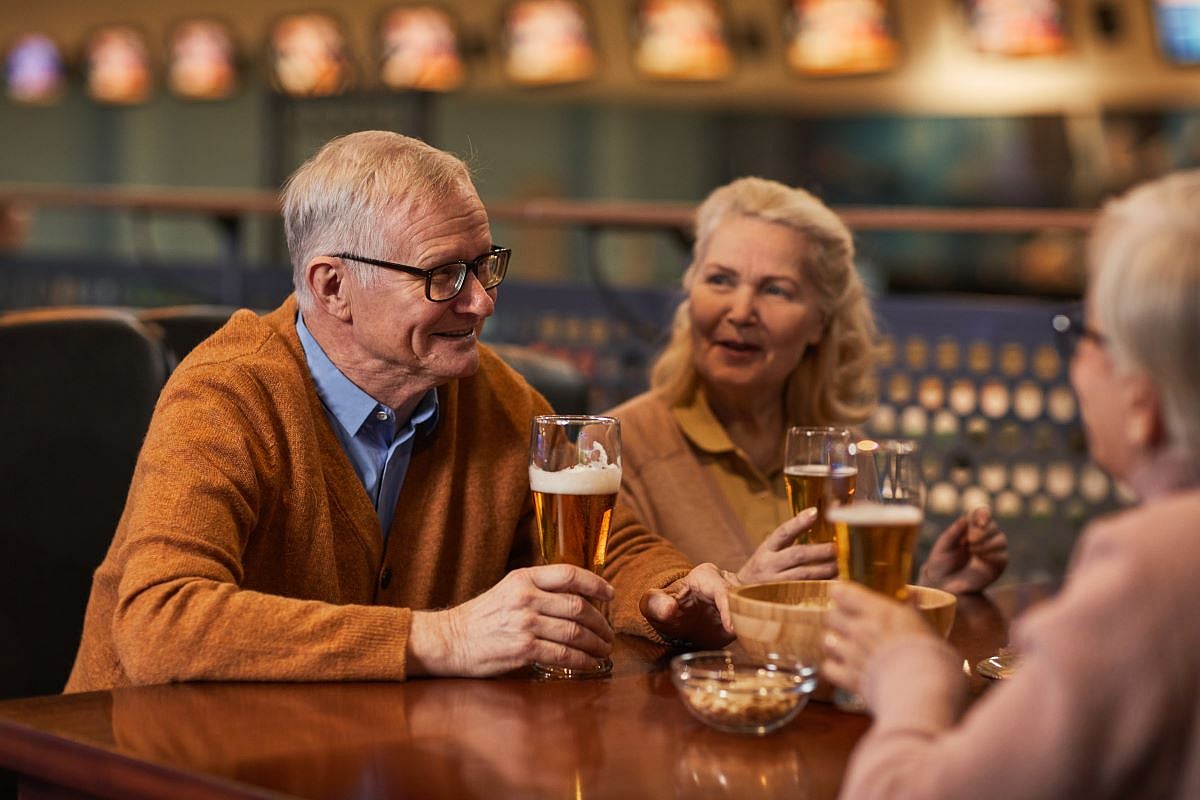Get Healthy!

- Dennis Thompson
- Posted January 15, 2025
Retirement, Mental Health, and Alcohol Use: What They Have in Common
Retirement is meant to be a person’s chance to take it easy and enjoy life.
But for many, it’s a quick route to depression and boozing, researchers reported in a study published Jan. 10 in the journal Aging and Mental Health.
Retirees are more likely to suffer from symptoms of depression than folks who are still working.
What's more, heavy drinking might be making their symptoms worse, researchers found.
“Providing alternative coping mechanisms to heavy alcohol consumption for retirees is crucial,” researcher Christina Sellers, an associate professor of social work at Simmons University in Boston, said in a news release.
“Addressing the combination of depressive symptoms and alcohol use among older adults is crucial too, especially considering their increased vulnerability to the negative effects of alcohol and underlying health conditions,” Sellers added.
For the study, researchers analyzed data on more than 27,500 U.S. residents 50 and older taking part in a long-time survey of health and retirement, in which they’re questioned about their lives every two years over an average of 14 years.
Participants self-reported their drinking habits, and answered questions related to their symptoms of depression.
Results show that retirees suffer more depressive symptoms than people who are still on the job, researchers said.
Retirees who reported binge drinking also tended to have more symptoms of depression than non-drinkers, researchers found. Binge drinking is defined as five or more drinks on the same day for men and four or more for women.
However, retirees who drank in moderation had fewer symptoms than men -- one to three drinks a day for women, one to four for men.
Retirement comes with many changes that can challenge a person’s mental health, researchers said; loss of the identity that comes with work, financial problems, changes to routine, and less social connectedness among them.
In addition, seniors tend to process alcohol less well than younger people, and might be taking medications that interact with drinking, researchers added.
Moderate drinking might lift a person’s mood through socialization, but researchers don’t recommend having a regular drink or two to adjust to retirement.
“Drinking alcohol increases the risk of falls and other injuries and can lead to dependency – and the poor health that typically comes with it,” lead researcher Antonia Díaz-Valdés, an assistant professor with Universidad Mayor in Santiago, Chile, said in a news release.
The World Health Organization (WHO) says no amount of alcohol is beneficial to health. About half of alcohol-related cancers are caused by light or moderate drinking.
“It is vital that older adults are screened for depression and that the amount of alcohol they drink is assessed,” Díaz-Valdés concluded. “There is no doubt that adjusting to retirement can be difficult for some but turning to alcohol is not the answer. We must find – and provide – healthier alternatives.”
More information
Harvard Business School has more on the stress of retirement.
SOURCE: Taylor & Francis, news release, Jan. 13, 2025




